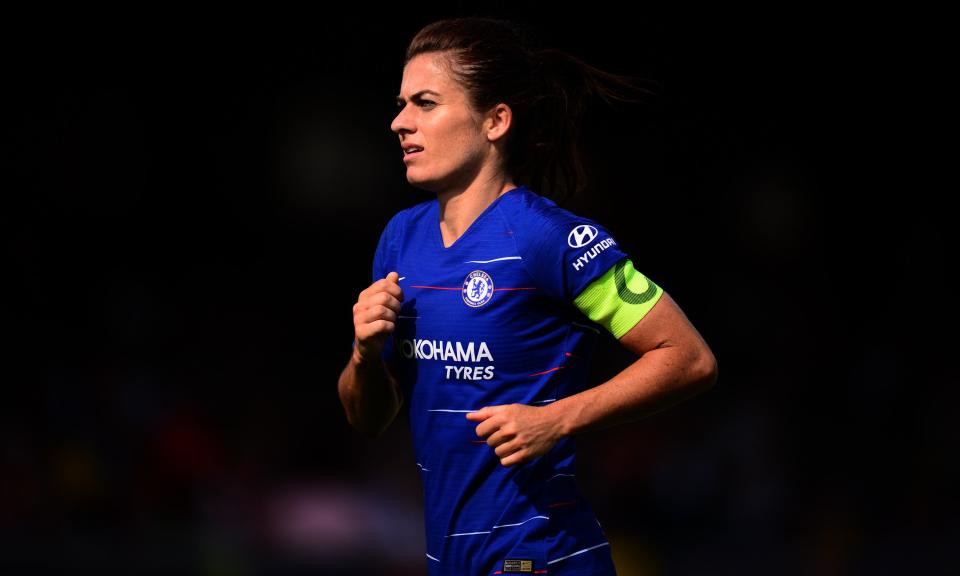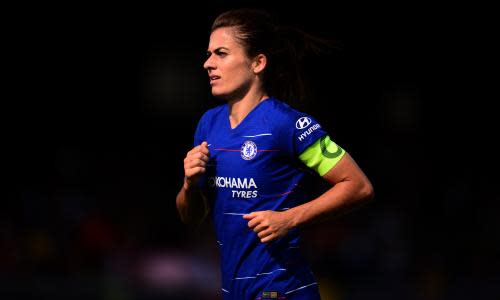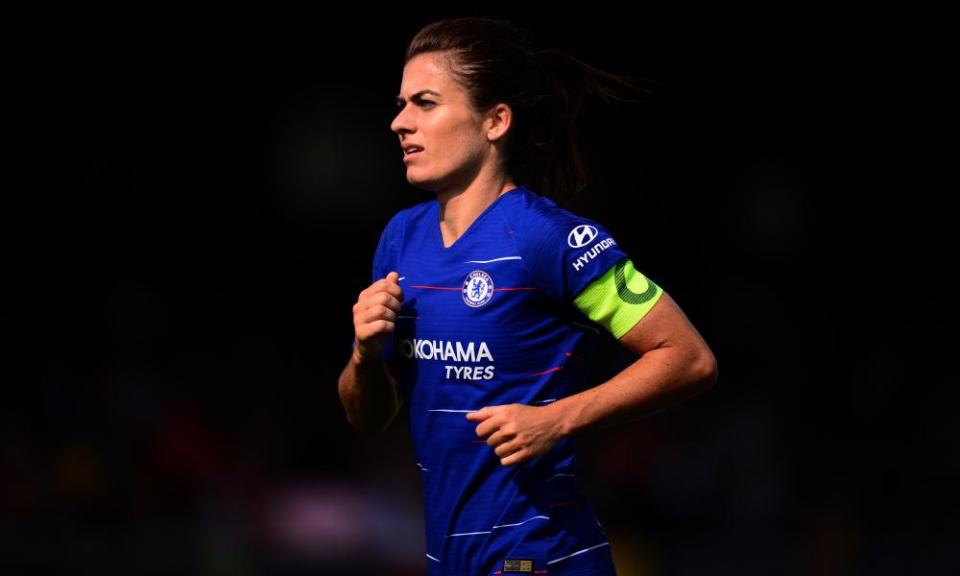‘We can’t control the trolls’: threats to Carney highlight football’s growing issue
It was as predictable as it was despicable. “I’m going to rape and kill you,” read the message from an Instagram user benhughes_15 at 8.28am on Friday. Then, as if taunting the unnamed England player he was addressing in light of the abuse received by Karen Carney after Chelsea’s Champions League victory against Fiorentina earlier this week, he added: “Can I get a headline on bbc sport?”
READ MORE: FA condemns social media abuse of England’s Karen Carney
READ MORE: Premier League after 8 matches - Does it matter?
Six hours after sending that hurtful message, the user’s account had yet to be suspended by Instagram despite it being highlighted by England Women manager Phil Neville to his 450,000 followers and subsequently covered by various media outlets. “Another disgraceful, awful, despicable message sent to one of my @lionesses,” wrote Neville. “@instagram can you do a better job of protecting my players who use your social media platform!!”
Chelsea midfielder Carney – a veteran of 133 England caps – later posted a statement that thanked the Football Association for its quick response in reporting the abuse to Instagram and the police, describing it as “abhorrent, totally unacceptable and very upsetting”.
“I trust it will be dealt with by the correct authorities to ensure this doesn’t happen again to either myself or anyone else,” she added.
Online abuse is certainly nothing new in football. But while England’s players of all ages are now frequently given social media training and encouraged to report any incidents to the FA, the 285% rise in attacks reported by Women in Football’s sexism abuse survey last season underlined the extent of an issue that has sadly become part of the modern game.
“We’re not going to go back to a time where this doesn’t exist and I think the FA should be concerned because this is new territory for us,” says Rachel Brown-Finnis, the former England goalkeeper who now works as a pundit for BT Sport.
“The only thing you can do is to continue to educate the players on how to deal with this. When specific incidents like this come up, it would be great to know that there is someone there that Karen can turn to help her deal with this. Those comments were horrific and while some people might be able to carry on with their life afterwards, we have to make sure that we are looking after our players in the right way.”
She adds: “The only thing we can control is what we put on there and how we present ourselves. What we can’t control is the trolls – that’s down to the social media companies. They need to be pulling more of their end of the bargain and acting when something happens. As someone said on the radio the other day, if you were to post on Twitter about there being a bomb somewhere then they would jump all over that and be able to charge them. So they do have the capabilities to do that as and when they want to. The problem is most of the time it’s people who just close down their accounts and open up a new one after they’ve sent a couple of abusive tweets.”
When contacted by the Guardian, Instagram said they were investigating the latest message and encouraged users to report any abuse they encounter via the new in-app tools launched last week. Designed to “limit bullying and spread kindness”, the new technology will be able to detect and hide hurtful comments from users and make it easier to flag up any potential trolls, although Brown-Finnis believes female players will still remain targets regardless.
“It’s partly down to each individual and how much notice they take of what has been said, but we’re all human beings and you can’t just brush off direct comments that are absolutely disgusting without it having any affect,” she says. “It also means players become slightly more defensive about what they say – women’s football has always had a fantastic rapport with the supporters both on and off the pitch and we have been very open in the past.
“I just hope that this kind of thing doesn’t have any negative consequences because that is one of the best things about our sport and is one of the main reason that people come to watch us. That interaction with the fans has always been encouraged by the FA and all the players. It’s something that distinguishes us from the men’s game.”
Yet while the likes of Alex Scott and Guardian columnist Eni Aluko have become regulars as TV pundits, their presence has also contributed to a depressing rise in the number of incidents of online abuse.
“When I started doing BT Sport there were some throwaway comments – and I mean throwaway because I threw them away very easily - you know, ‘you’re a woman what do you know about football’ and that sort of thing,” says Brown-Finnis. “I’ve never given any weighting to comments like that. As a goalkeeper, you need to have a short memory because that is part of your make up to get over mistakes very quickly so I think that has worked for me. Everyone is entitled to say what they want but often this kind of thing is just designed to try and get a reaction, which is something I would never do. There’s no point having dialogue with an opinion that belongs in caveman times.”

 Yahoo Sport
Yahoo Sport 








































